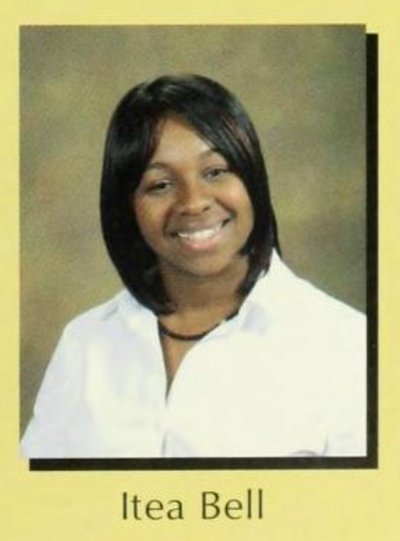Itea Bell Tanner
Itea Bell Tanner
“Invested in My Success”: Itéa Bell Tanner (‘08) Remembers Her Full and Busy Life at Rowan -- Memory #77 of 100

Today’s Project 100 memory comes from Itéa Bell Tanner. She was born and raised in Penns Grove, New Jersey. Her mother was a corporate buyer for DuPoint Industries. Her father was a social worker, but he sadly passed away when Itéa was nine years old in 1995. She went to public schools and graduated with high honors from Penns Grove High School in 2004. Four years later, she graduated from Rowan (also with high honors) with degrees in history and K-12 subject matter education. Very soon after graduating, through the help of fellow Rowan history major, Cara Flodman, she was able to get a full-time job teaching middle school social studies and writing in East Windsor Regional School District. While teaching at East Windsor, she completed a Master’s degree in American Studies with a focus on Urban Cultures at Rutgers-Newark. She was the first student to complete the thesis option in the program. After she finished her MA, she began teaching American Studies and Introduction to Communication as an adjunct professor at Penn State – Abington and after seven years at East Windsor, she took a job as an Urban Turnaround Specialist with the Johns Hopkins School of Education. For this position, she partnered with the Philadelphia School District to help remedy the problems of struggling schools. She left this position after one year and took several other jobs before landing a position for the SEED Schools Network, where she was a full-time teacher for grades six to eight and also a Network Professional Development Facilitator. She then became Director of Curriculum and Instruction and, eventually, Assistant Head of School for Holy Trinity Episcopal Day School and Bishop Walker School for Boys. Her current role is Director of Academic Quality for City Teaching Alliance, where she supports the development of superior educator preparatory programs in Washington DC, Baltimore, Philadelphia, and Dallas.
*****
I began college as a journalism major at Hampton University in Hampton, Virginia. I then decided that I wanted to become a history teacher, and so I transferred to Rowan where I could major in history and pursue certification to teach in New Jersey. I had always known about Rowan as I had relatives who had graduated from Glassboro State College.
At Rowan, I was very active. I joined The Whit newspaper immediately, beginning as a writer and later becoming copy editor. I also joined the pre-law society, as I thought I might do that at some point. Like many Rowan students, I also worked during college at the Glassboro Child Development Center in their afterschool program, which helped convince me of my new career path. I also joined numerous honors societies, including Phi Alpha Theta, Golden Key, and Kappa Delta Pi, the education honors society.
I arrived at Rowan most interested in African American history, but I remember learning how things connected at a broad level. Through courses in world history, the Middle East, and United States history, I saw how developments in one part of the world impacted developments in other places.
Many faculty members stood out to me at Rowan. Of course, I remember taking Historical Methods with you, Dr. Carrigan. Dr. Blake’s course on Islam and the Middle East was very moving to me, especially as this was not that long after September 11th. Dr. Joan Bryant’s course on the Antebellum South, where I first read Twelve Years a Slave, was also a great class. One of my favorite courses was Senior Seminar with Dr. David Applebaum, where we all did papers connected to American imperialism. I did my paper on the Disney corporation. This helped prepare me for my later work at Rutgers where I began to study material culture.
I see my time at Rowan and Rutgers as being very helpful to me in my ongoing work with the study of hip-hop culture and its artifacts. I learned how to be a historian in these two programs. History is not just about reading books about dead people (which I like to do, of course). It is about the intersectionality of place, culture, economics, identity, and so much more.
Rowan made me feel like there were things to learn in southern New Jersey. I felt that the faculty at Rowan knew me very well and were invested in my success, which was especially meaningful as a transfer student. I think that this closeness has also been evident whenever I have interacted with fellow Rowan alumni and staff in the years after graduation.
*****
This is part of the Department of History’s “Project 100,” the collection and sharing of one hundred memories by Glassboro State College and Rowan University alumni and staff in celebration of the 100th anniversary of the founding of Glassboro Normal School, later Glassboro State College, and now Rowan University. Thanks to Laurie Lahey for helping proofread and edit the final versions. Email carrigan@rowan.edu with questions or corrections. You can find the Link to all of the Project 100 entries on the Web: https://chss.rowan.edu/departments/history/alumni_highlights/project_100/



